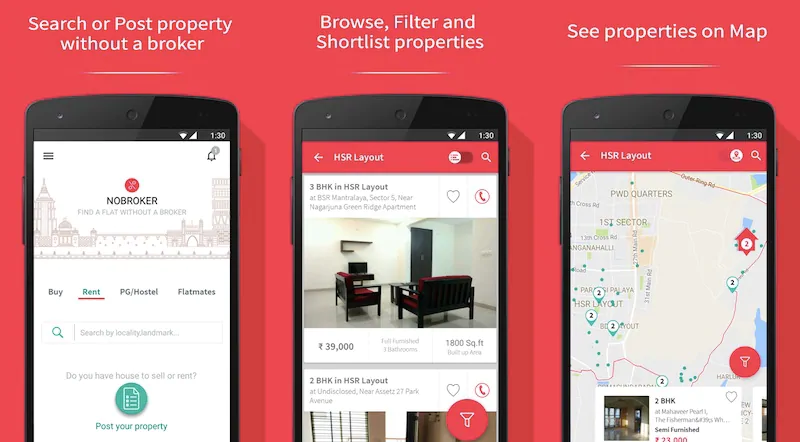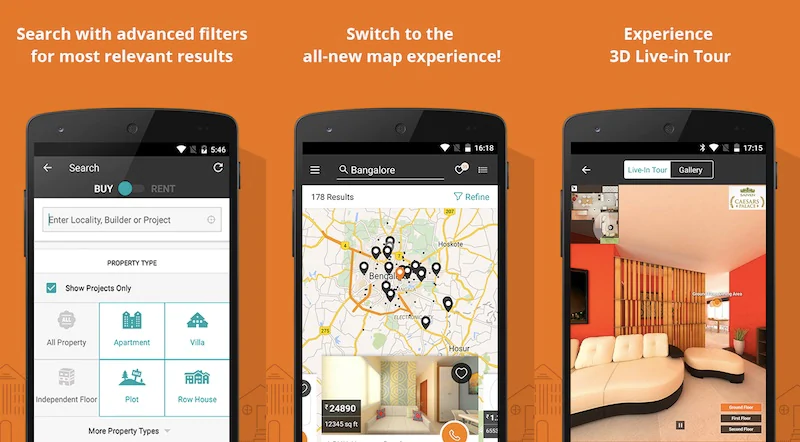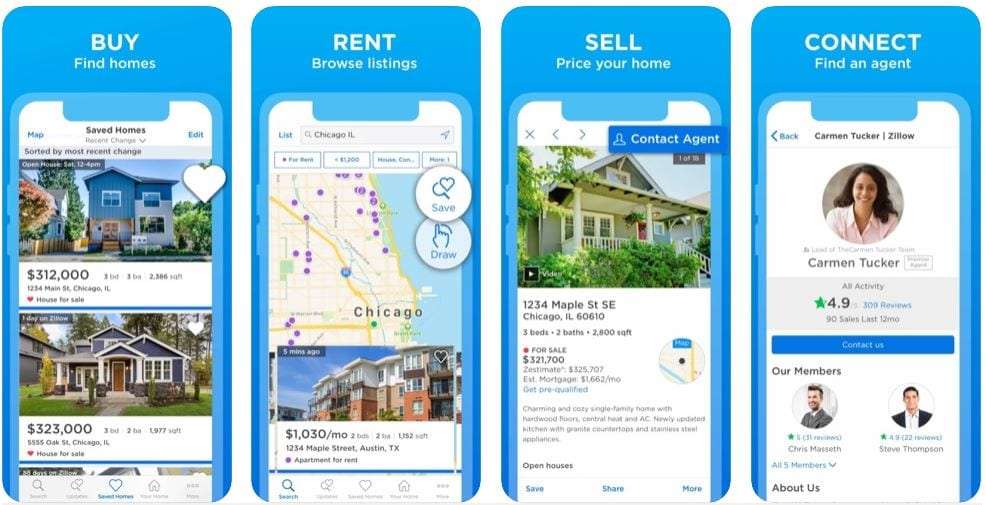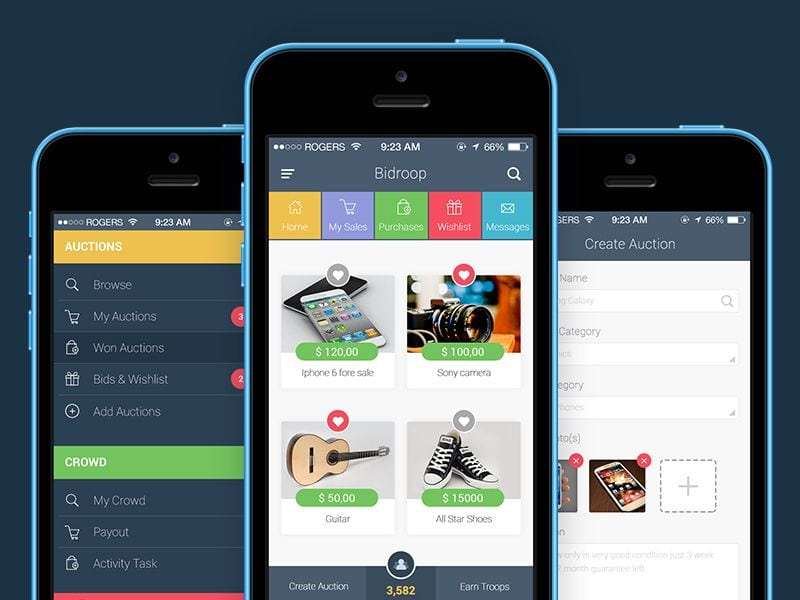Managing a real estate business is certainly not a breeze. It is a rapidly growing industry with home values increasing by 7.2% in the US from 2018 onwards.
As per the US Census Bureau, about 74.4% of the rental properties in the US belong to individual real estate investors. It is estimated as per Realty Biz that by 2025, an additional 20 million new households will come into existence. The real estate investors have increased by 50% in the past decade.
Nowadays, the demand for smart home products has increased. A survey by Ventureboat showed that 63% of tenants want smart home security while 63% demand smart home climate controls, 58% are interested in having smart lighting, and another 56% ask for smart safety devices like carbon monoxide detectors.
People want virtual tours of the rental properties and more, which has been made possible with real estate apps.
So, if there is one thing that these stat figures indicate, it is that just like all walks of life are undergoing a modernization through technology, similarly, the real estate development business is not left behind.
The real estate business world calls for innovative real estate app ideas to change the way their businesses are operating and to provide a better customer experience. Hence, let’s deep dive into the real estate app ideas that are useful for agencies, agents, customers, and investors.
10 incredible real estate app ideas in today’s market
If you want to start your real estate business, then you can take help from the below provided real estate app ideas.
Property Listing App

As per the National Association of Realtors, more than 50% of customers search for properties online nowadays and the numbers are expected to go up soon. Therefore, it is for real estate agents to list their properties online from a mobile application development agency that can be accessed by customers through a website or a mobile app.
Creating a property listing app is, therefore, an excellent app idea for real estate businesses to list properties categorically starting from rental properties, commercial spaces, and properties for sale.
It is essential to create a genuine-looking web presence to gain the trust of clients and to offer the convenience to customers to directly connect with the property owners for fixing up a deal. You can earn a commission for all the deals that happen via your app.
You can enable the app with features like ML tools, AI Smart Searches, Search Filters, Push Notifications, and more.
Best Example: 99Acres
Virtual Mobile Tour App

AR & VR is no longer limited to a few areas of application. Nowadays they find use in many more things like real estate.
With the help of AR and VR technology, the world of real estate has transformed the property inspection experience of its customers. Goldman Sachs’ research shows that by 2025, the use of VR technology in real estate will generate $2.6 billion in revenue.
No longer do people have to find time from their hectic schedules to personally visit properties. Property buyers can take a look at the property from their home or office up close and decide better for themselves.
Virtual tour mobile applications have created the scope to view the virtual scenes of the property, take a 360-degree panoramic view of the space, and look at 3D models. This is a top-notch marketing method in the real estate business to attract potential customers.
Other offerings of virtual mobile tour apps include the following:
-
- Integrated maps,
- VR tools,
- Social media sharing options,
- Hotspots & buttons,
- Sound effects,
- Superior quality photos of the property, etc.
Best Example: Palm Harbor
Property Renting App

If you are a real estate broker, then you can start your own digital rental business by creating a property rental app as per your brokerage model. You can not only rent your properties but also invite other brokers to join the digital rental property marketplace by listing their properties through your app.
Thus, this kind of app can be of great help for frequent travelers and people who are trying to find quick accommodations from remote locations.
Best Example: NestAway
Locality Review App

Most people nowadays like to check the locality of the residence which they are planning to take on rent or purchase. A good location is a key to attracting more customers.
People prefer places that have all amenities located nearby and are well connected to important destinations. Besides this, a safe and friendly neighborhood is a top priority for most people nowadays.
So, this is an excellent real estate app-building idea that has great potential to run successfully. This is because such an app can be referred to by users often if your app is known to be providing authentic reviews of localities.
Interesting offerings of such apps consist of 360-degree locality and property views, customized maps, HOA management, property management, and social sharing.
Calculator App
Plenty of calculations come into the picture in the real estate business. This may include mortgage expenses, taxes, and repair expenses.
Taking care of so many calculations can seem cumbersome to buyers many times. Thus, this provides a good scope of business for real estate brokers to create a smart calculator app that can take care of a great deal of calculations without much hassle.
A smart calculator app is a robust enterprise-grade application that can solve the problem of complex calculations in no time.
These apps can predict the true expenses of a property including the taxes. It can also fetch analytic reports that can be accessed by clients via emails or social media platforms easily.
Best Example: Karl’s Mortgage Calculator
Investment App

Investing in the real estate market is a lucrative way to earn passive income. So, creating an app to assist people with their real estate investment can be another promising real estate app idea.
A smart real estate investment app that can offer all property-related details, comprehensive analysis of the property, data related to pricing trends, the real-time mortgage price of the properties in question, the demand-supply situations, and a lot more.
At the end of the day, potential investors can find all this information handy and helpful to judiciously decide for themselves.
Best Example: Zillow Real Estate
Lead Generation App

Another tedious task for relators is to manage the leads, follow up with them, solving the issues, and then simultaneously managing the needs of the existing clients.
A customized real estate tool can robustly help real estate businesses to generate more leads, gather their details, engage customers in a personalized manner, target audiences via social media platforms, webchats platforms, IVR, websites, etc.
Lead management apps can do the following:
- Send emails,
- Book appointments,
- Keep track of management,
- Help with marketing automation and team collaboration,
- Provide data-driven insights.
Best Example: LeadGen app
Online Auction App

Realtors can double their wealth with the help of auctions. You can create an online auction app to facilitate people to participate in them from anywhere. It is quite a novel real estate app idea. This can help connect sellers, buyers, and online auction managers through a trustworthy platform.
Best Example: Online Auction
Digital Document Library App
Does dealing with tons of documents regularly seem a daunting task? Well, the real estate business involves the use of several documents and requires plenty of paperwork. There are rental and property lease documents, documents related to bank account information, identity, and more.
Reducing the load of paperwork, e-documents, and soft copies of various government IDs and agreements are accepted. But even storing them properly can be challenging for brokers.
Therefore, you can design an excellent document management app that can manage all essential documents associated with your ongoing projects on your behalf. Such apps can also be designed to provide personalized and fast-track services.
Renovation Estimate App
Purchasing dilapidated properties and renovating them to turn them into standard accommodations to make money from them through renting or sale is a wonderful way to thrive.
But they often have to take care of an extensive number of calculations to proceed with the renovation. Investors need to make an exact estimate of the repair costs.
So, offering an app that can do this for the investors can be a great business. Besides this, if the app can help investors track builders, electricians, maintenance personnel, plumbers can be beneficial add-ons.
Best Example: PlanGrid
Final Thoughts
Mobile platforms are the best ways to attract customers nowadays. Running a real estate business successfully is all about finding the right avenues for increasing customer experience and convenience.
Just like the eCommerce business and all other businesses, technology has been a real game-changer even in the world of real estate business. Hence, you came across the 10 best real estate app ideas in this article that you can take help to grow your real estate business in no time.












